The Wild Ride – a Bikes in Space Excerpt
If you love queer, feminist science fiction and fantasy, bicycling, and books about books, The Bicyclist’s Guide to the Galaxy, published by Microcosm in fall, 2023, will check all your boxes. Get a taste of what’s inside with this excerpt is from the story “The Wild Ride” by Shelby Schwieterman—and then get a copy of the book!
You can also read an interview with Shelby on our Kickstarter page.
Carly wasn’t upset, and she didn’t care what the other girls thought of her. She simply wanted to read her book more than she wanted to participate in some stupid sleepover, and if that made enemies for her, then so be it. What could a group of sixth grade girls do to her anyway? Gossip about her at school? Ha, like that could harm her. Carly was tough. Carly was a freaking Crystal Warrior, just like Annabeth the Quick, hero of the Shining Realm, protector of the Great Egg of Wisdom.
Carly paused under a street lamp to adjust the straps of her backpack. She had perfected the art of reading while walking back in, like, fourth grade, but doing it at night really upped the difficulty level. Her right hand ached from holding the book open and turning pages with her thumb; her left hand was slippery with sweat where it gripped the cell phone she used as a reading light. She longed for the return of her actual reading light, which had been taken away after she’d been caught too many times reading under her covers while she should have been sleeping.
The night was hot and humid for this time of year. Crickets chirped happily while toads croaked and sang, trying to outdo the little insects. Carly had been a sixth grader for almost two months now—the very least the weather could do would be to reward her with a cool, breezy night in which to walk home. It was the time of year for ghost stories and black cats and strange whispers on the wind, not for sweating through your pajamas and daydreaming about snow.
“Ugh,” Carly said to the undesirable weather. She balanced the phone on the book, wiped her sweaty palm, shook out her other hand, and then continued on.
Most people walking home from an abandoned sleepover at sometime after midnight would stick to the sidewalk. Not Carly. The empty street provided a wider, clearer path for her feet to follow while her eyes were busy finishing chapter twelve so she could get to chapter thirteen in which Annabeth breaks the other Crystal Warriors out of the dungeon so they can help her find the Great Egg, which has been stolen by the evil emperor’s dark forces.
Some people would be worried about being hit by cars, but this scene was one of Carly’s favorites, and she hadn’t seen or heard any cars since she started her walk home ten minutes ago. Some people, in Carly’s opinion, were just too cautious. How could anyone enjoy the book they were reading if they were constantly worrying about what was going on around them while they read?
Except for the occasional runaway or missing person, Carly’s town was quiet and boring. Just like Carly, according to the girls at the sleepover. Carly didn’t take it to heart. Those girls simply could not stand that they were less interesting than a book she had read a dozen times already. Her copy of The Crystal Warriors was beginning to look like it had been through as many battles as the Crystal Warriors themselves. The paperback cover was chipped and bent from being shoved into and ripped out of a backpack, a bookshelf, a desk, and a hiding place behind a different book so her teachers wouldn’t know she was reading it again instead of “expanding her horizons.” The pages were soft and feathery from dirt and oils they’d collected with each turn. Pages thirteen, eighty-six, and one hundred eighty-four were marked with fingerprints of cheese dust from Carly’s careless snacking while reading. An unfortunate blotch of spaghetti sauce graced page ninety-two, not to be confused with the actual bloodstain on page ninety-three, the result of a sudden but minor nosebleed. It was as if she had left almost as much of herself in the book as the book had left in her. Almost.
As Carly’s feet slapped the pavement, she turned the page. Chapter thirteen. Yes! Carly’s pace quickened as she followed Annabeth sneaking into Fort Marion’s hidden underground prison, subduing guards before they even realize they’re not alone. She was called Annabeth the Quick not because of her fast feet, but because of her fast thinking. She could talk her way out of trouble and talk others into trouble with fluid reasoning and endless charm. Of any character in the book, Annabeth had the best insults and the best comebacks. She was about to deliver one of her wittiest to a prison guard when—
The phone light flickered, then died, plunging Carly and her book into the thick dark of the night. Carly wiped sweat off her forehead with the back of her arm. After a few misses, she managed to tuck her phone into a pocket of her backpack. Something about the night felt wrong. Carly turned slowly in the street, searching for whatever felt so off about the darkness. She squinted, but couldn’t see the streetlight she’d passed just moments before. The only light came from the moon and stars above. Definitely too little to read by.
“Ugh,” she said to the darkness. She’d have to walk the rest of the way without reading. Doable, but not preferable. Even the toads and crickets were mad about it. She could tell because they were unusually silent, except for a strange whirring whine from somewhere back the way she came.
As Carly stood there, perplexed, the darkness at the end of the street transitioned to a milky green glow that moved quickly toward her. The long, whining sound grew louder. Sudden wind whipped her hair around her face, obscuring her vision, making her doubt that what she was seeing was real: Within the pale green light were cyclists. Dozens of them, maybe a hundred. They moved as a unit as they sped closer. Heads down, feet pumping, wheels spinning, frames rattling, they headed right for her. Carly couldn’t tell where the riders ended and their bikes began. One figure led the pack, with the rest following in a swarm. She blinked, and they were yards away. She blinked again and they were upon her.
Cyclists zipped past, grazing her elbows and knocking her left and right. She caught a flash of yellow eyes, a glint of white teeth, an otherworldly grin. The din of at least a hundred wheels flying past was accented with manic, frenzied laughter and the smell of hot rubber.
Carly dropped to the ground in a crouch, her arms curling over her head for protection. She expected to be run over. She was faced with the entirely new reality that she might die at any time. And that time might be after midnight, in the dark, as strange glowing cyclists ran her over in the middle of the road.
This is not, she thought, how a Crystal Warrior would get killed! Her scream vibrated in her throat, more like a growl of frustration than an expression of terror. But before her growl ended, space opened up around her. The sound of bikes whizzed away down the road. She jumped to her feet and watched the herd of cyclists move farther and farther down the street, taking their glowing light with them.
For a moment, Carly was frozen with awe. Just for a moment. Soon, though, she realized something very important was missing. It wasn’t in her hands, and it wasn’t on the ground. Not even a scrap of paper or a chunk of cover remained. She checked her backpack, just to be sure. But no, it was gone.
Carly turned back toward the direction in which the herd had disappeared and shouted, “Give me back my book, you bicycle freaks!”
Want to find out what happens next? Get the book!
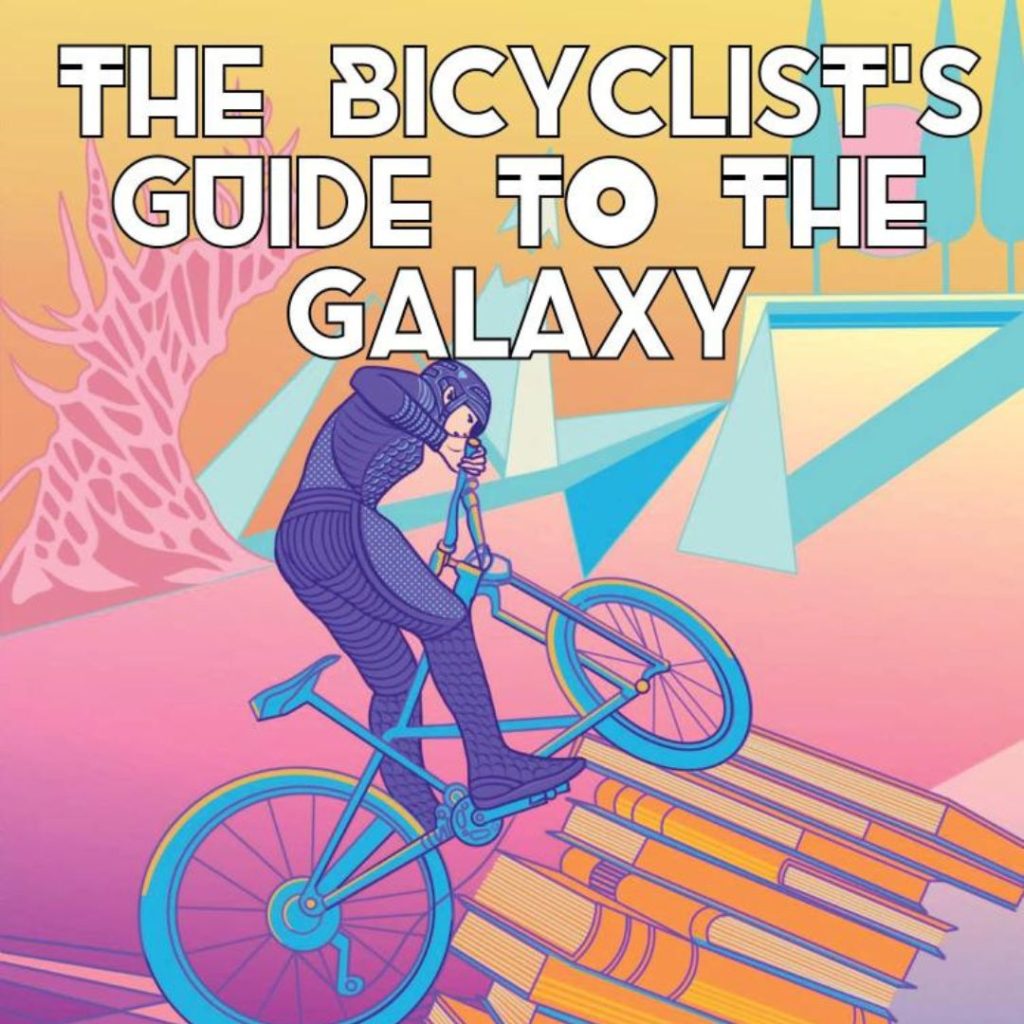
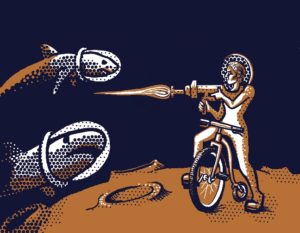 Submissions are open for Bikes in Space Volume 5, published by Microcosm’s Elly Blue Publishing imprint. The theme is Intersections. Stories that are accepted will all have a feminist perspective and incorporate bicycling in some way, whether or not they are actually about feminism or about bicycles. We especially welcome submissions from writers of color and transgender and nonbinary writers, and seek stories that portray more diverse perspectives than are classically found in sci fi.
Submissions are open for Bikes in Space Volume 5, published by Microcosm’s Elly Blue Publishing imprint. The theme is Intersections. Stories that are accepted will all have a feminist perspective and incorporate bicycling in some way, whether or not they are actually about feminism or about bicycles. We especially welcome submissions from writers of color and transgender and nonbinary writers, and seek stories that portray more diverse perspectives than are classically found in sci fi.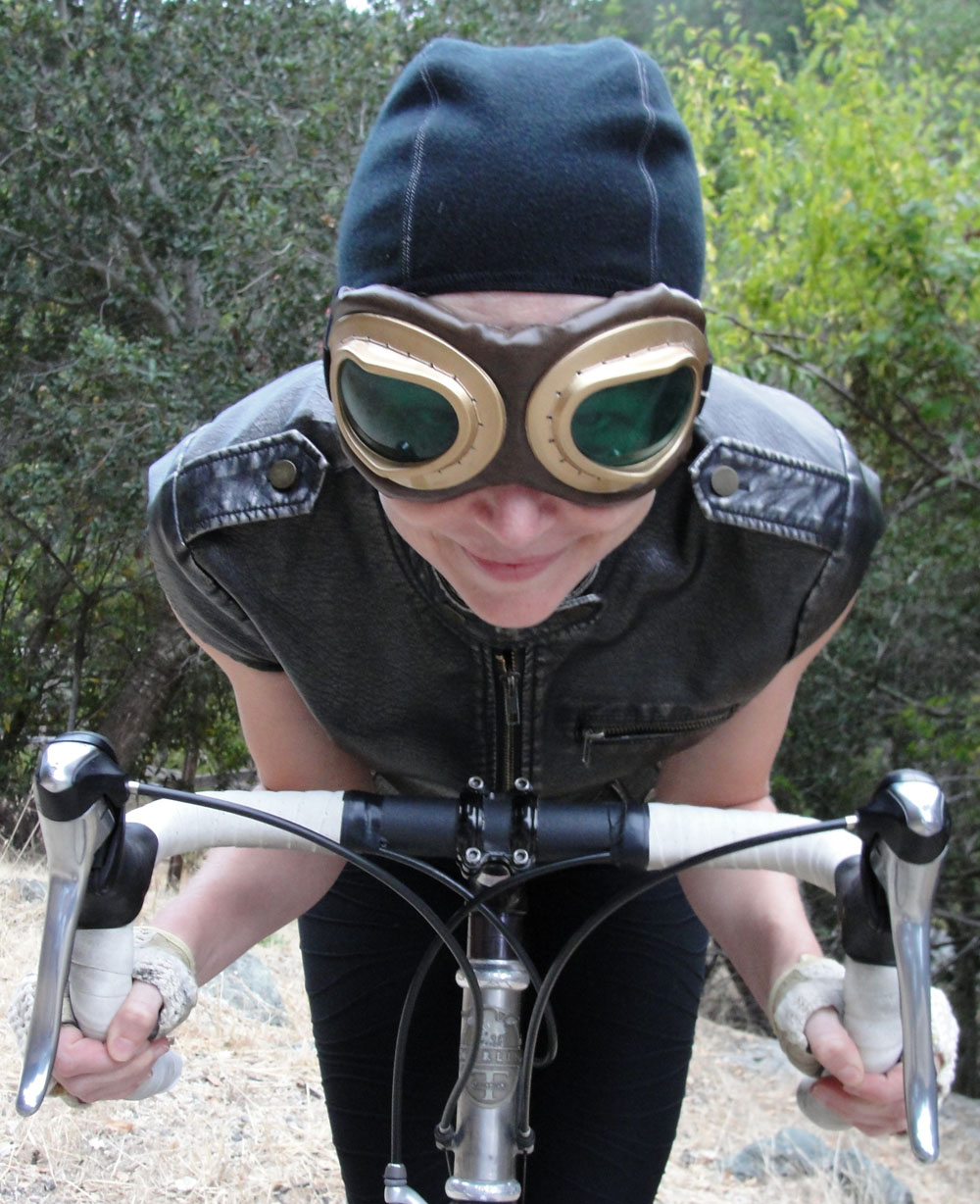 “A tough girl rebels against stifling gender rules in a quasi-historical steampunk world, dreaming of racing her bicycle in the cutthroat velocipede races. But can her dream survive scandal, scrutiny, and heartbreak?” That’s how
“A tough girl rebels against stifling gender rules in a quasi-historical steampunk world, dreaming of racing her bicycle in the cutthroat velocipede races. But can her dream survive scandal, scrutiny, and heartbreak?” That’s how 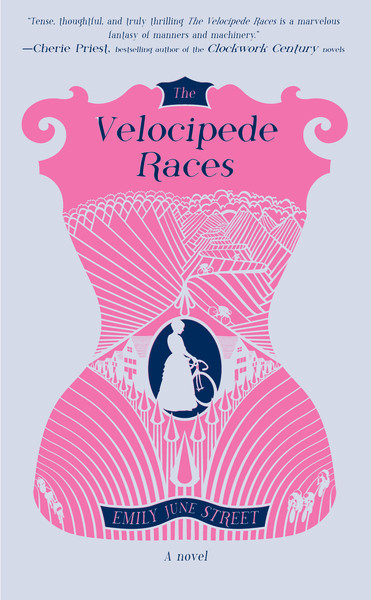
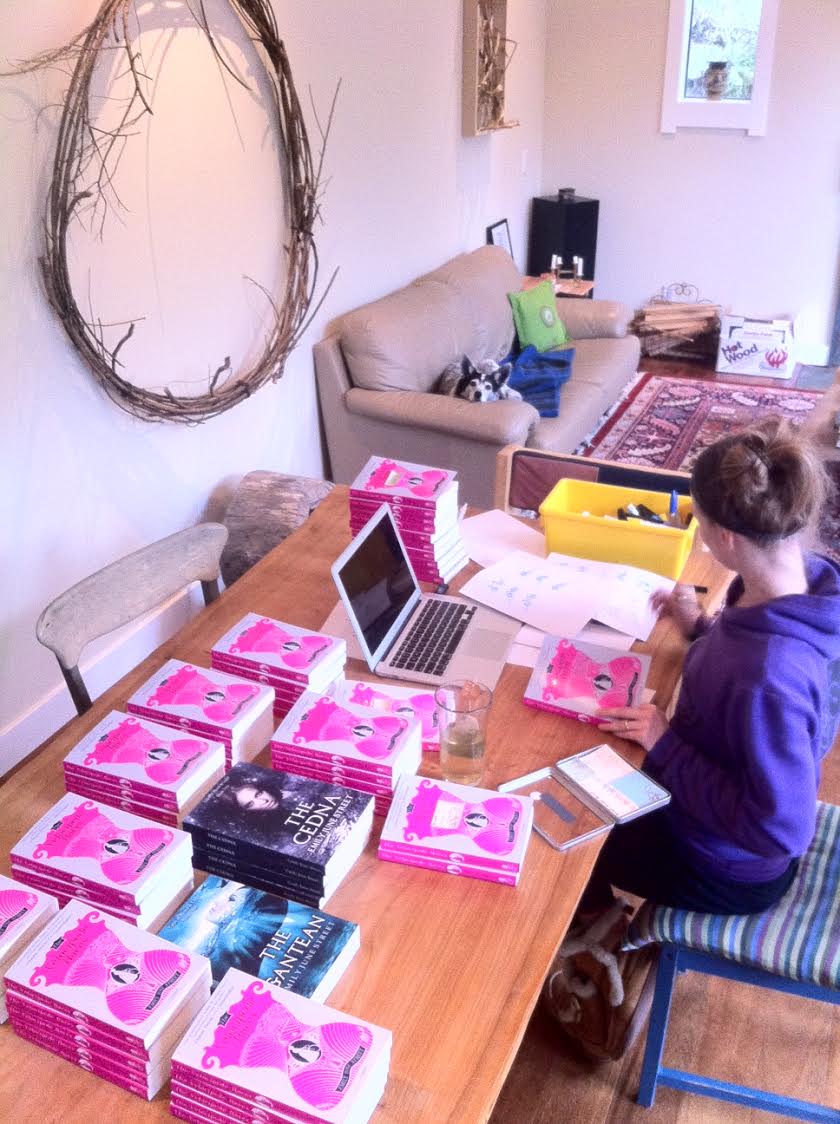
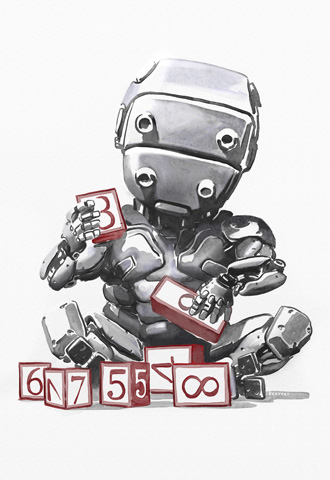

 Slowly, but surely,
Slowly, but surely,